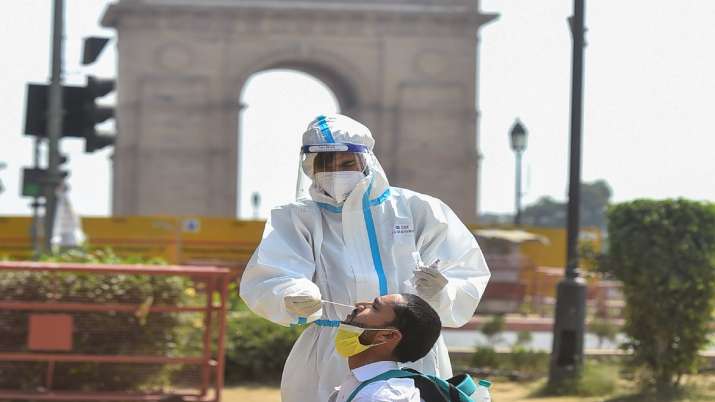Dr Shivali Ahlawat, MD, DNB Pathology, Lab Director- Oncquest Laboratories (National Reference Lab), Gurugram
No one is immune to mental health disorders; it affects both adults and children alike. However, it is even more challenging for the latter as they often find it difficult to precisely describe their feelings. Thus, I have put up this piece to help you understand how to identify, support and manage a child suffering from a mental health disorder.
Physiological and psychological reasons have been the two leading causes of mental illnesses among children. If the needs of mentally impaired children are not met, they suffer setbacks anywhere they meet, themselves.
I’m not oblivious of the various steps being taken by stakeholders to put this problem at its barest minimum but the recent outbreak of the COVID-19 pandemic that grounded every meaningful activity globally, has disrupted the flow of progress recorded so far. Children had to unexpectedly transit from physical learning system to online classrooms they were not used to. While the process may sound simple, it has had a huge mental effect on the children. For instance, they needed to battle with loneliness as they could no longer play openly with friends. They were also uncertain of exam pattern and dates. Uncertainty triggers anxiety and stress, more so insensitive and vulnerable young minds.
From the foregoing, there’s no gainsaying that everyone needs to know the symptoms of mental health disorders among children to proactively deal with it before it negatively affects the kids.
Why Many People Find it Hard to Identify Mental Health Disorders in Children
Some of the reasons why a lot of people are unable to recognize mental illnesses among children are:
- A Child’s growth and development comes with changes and every child reacts differently to each stage of the growth process. Many times, it is difficult to know whether a noticeable change is a part of the growth process or a pointer to mental illness. Adolescence is associated with behavioural and mood changes as the growing child adjusts with the physiological changes in his/her body.
- Children in different age groups can react differently to signs of the same mental illness.
- Kids do not know how to precisely or clearly describe their feelings and thoughts.
- Due to the needless stigmas associated with mental health disorder, a lot of parents try hard to ignore or suppress its symptoms in their kids.
Common Mental Health Disorders Affecting Children
Some of the most common mental health disorders that children suffer from are:
- Anxiety disorder: Kids may be persistently enveloped in worry, fear or anxiety which limits their ability to actively participate in age-appropriate social activities such as playing, contributing to discourses in class, making new friends and extra-curricular events.
- Attention-deficit/hyperactivity disorder (ADHD):A survey carried out by NCBI shows that 11.32% of children in primary school level of learning are diagnosed with ADHD. Children suffering from this disorder find it difficult to concentrate; they suffer from attention deficit. They are also hyper-active and demonstrate impulsive behaviors.
- Autism spectrum disorder (ASD):This disorder rears its ugly head in children when they are still below the age of 3. Its severity varies from one child to the other. However, any child suffering from ASD finds it hard to communicate effectively with others. Their emotional outbursts in social circles can be very irritating to their co-discussants.
- Eating disorders:Some of the major eating disorders are bulimia nervosa, binge-eating disorder and anorexia nervosa. Their major signs include bad eating habits, impaired thoughts about weight and weight loss and obsession with a given body shape. Eating disorders may cause life-threatening complications and social and emotional dysfunction.
- Depression:This is a persistent feeling of lack of interest in everything going on within one’s environment and being gloomy. A lot of children are depressed globally. It impedes a child’s ability to fit into the society—they are unable to function well both in school and at home. Depression is related to bipolar disorder, a common mood disorder responsible for sudden mood change. This disorder takes a child from being depressed to suffering from mania. This has a more negative effect on a child’s mental health.
- Post-traumatic stress disorder (PTSD): Children from broken homes or violent environments are the common victims of PTSD. Undiagnosed PTSD often leads to Antisocial Personality Disorders (APD). This ultimately leads to dwarfed emotional growth and lack of empathy.
- Schizophrenia: This is one of the worst mental health illnesses as it can cut off an individual from reality. Children battling with schizophrenia suffer from visual hallucinations or vivid auditory. This disorder is highly chronic and needs lifelong medical attention. However, early diagnosis can salvage the situation and help the child live normally.
The Common Signs of Mental Health Disorders among Children
If you notice any of the under-listed symptoms in your child, you should not delay in seeking help from professionals:
- Withdrawing from people around them
- A fortnight-long gloominess or sadness
- Contemplation of suicide
- Attempt to harm self or actual self-infliction of injuries
- Violent attitudes that puts the child or those around them at risk of being injured
- Unnecessary mood swings
- Wrong or inconsistent eating habits
- Irritating gestures or emotional outbursts
- Sleep disorder
- Inexplicable gain or loss of weight
- Short attention span or lack of concentration
- Regular headaches or stomach pains
- Uninspiring academic performance
Your Role in a Child Suffering from Mental Health Disorders
Whether you are a parent, guardian, caregiver or teacher, you have a vital role to play for a child suffering from mental health disorders. In fact, you are at the centre of their treatment plan as you are able to notice the change in behavioural or emotional patterns of as they spend much time being around you.
Below are some of the ways in which you can help support a child suffering from mental illness:
- Research or read up about the disorder to have detailed knowledge about it. It will be easier for you to manage a disease you know much about. However, make sure you are learning from a reliable or trusted source.
- A parent should give the child family counselling. When children are counselled by their parents or an expert recommended by them, they respond positively.
- Speak with your child’s mental health advisor on strategies you need to cope with the difficulties encountered from the child in the course of managing the illness.
- It can be emotionally draining to manage a child suffering from mental health disorder, learn how to calmly respond to unusual situations so that you do not disrupt the process with your untamed outbursts.
- Creatively engage the child in a fun-filled manner to make them respond positively to you.
- No matter how little you consider it to be, commend the child for every noticeable improvement.
- Parents should keep in touch with the child’s school authorities and let them know the child’s situation. This will enable them to give him or her the deserved attention and help.
In conclusion, mental health awareness should be heightened. In the words of Glenn Close, “What mental health needs is more sunlight, more candor, more unashamed conversation.” Though, the age-old stigma associated with mental health disorder is being gradually washed off, however we still have a long way to go. The brain is the most important part of the body—it works on a 24/7 basis—and as such, we must do everything to judiciously guard it from any form of illness or disorder. As an informed adult, you need to help your child from being a victim of mental illness. They need your help at their age. Play your role now!











